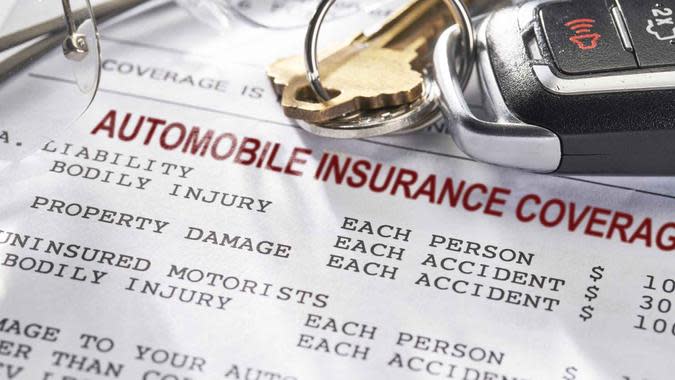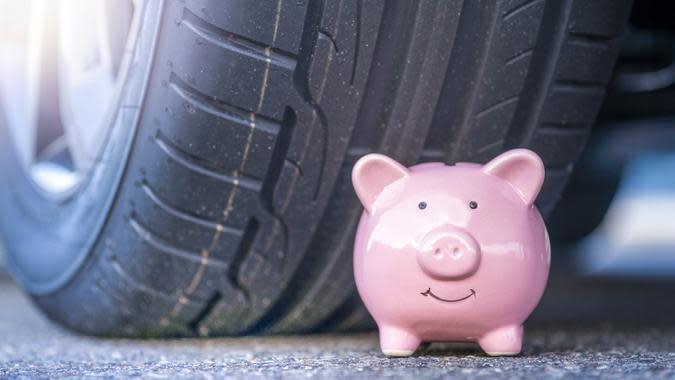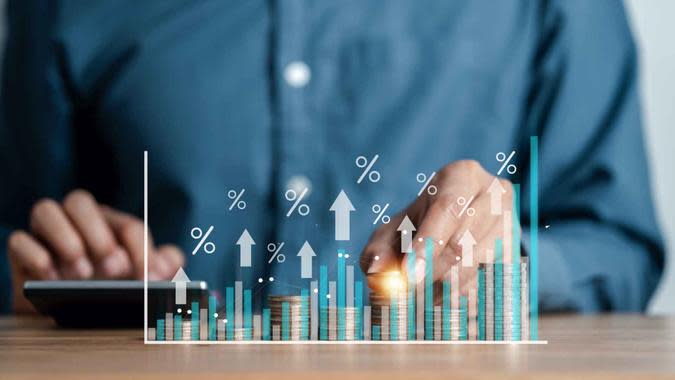7 Expenses Most Likely To Drain Your Savings Over Time

At the beginning of a new year, everyone tries to be on their best behavior when it comes to their finances. Cutting back on your spending can seem fairly easy after the holiday frenzy, but as it turns out, there are other long-term expenses that can drain your savings over time.
Next: 10 Expenses Most Likely To Drain Your Checking Account Each Month
See: 6 Unusual Ways To Make Extra Money (That Actually Work)
“While daily lattes draw attention, it is frequently the less conspicuous expenses that quietly sap resources,” said Ian Rodda, CFO at Page One Formula.
He believes subscription services, underutilized memberships and high-interest loans are the real culprits eroding your savings potential over time.
“Streamlining these can result in remarkable growth for personal finances,” he said.
Below are more expenses experts say can pose a threat to your savings if you’re not careful.

That Daily Latte and Regularly Eating Out
“A latte will probably cost you at least $5. If you get one every day, that’s $35 a week and over $140 a month,” said Melanie Musson, finance expert at Clearsurance. “You could spend over $1,600 a year on coffee.”
Other experts also note that frequently eating out will drain your savings in the long term.
“It seems harmless, but if you’re dropping $12 on lunch every workday, that’s easily over $3,000 a year,” said True Tamplin, founder of Finance Strategists.
Discover: 6 Ways Living Frugally Creates a Richer Life
Read: Frugal People Love the 6 to 1 Grocery Shopping Method: Here’s Why It Works

Insurance Payments
“Insurance is an essential and costly expense that can really impact your everyday spending power,” noted Bethany Hickey, personal finance expert at Finder.
“I don’t think people switch their insurance coverage as much as they should, largely because it’s such a pain,” she explained. “But if you’re intent on finding ways to save money long term, it’s worth the hassle to compare providers regularly to make sure you’re not paying more than you have to.”
At the very least, she suggests aiming to shop for a new insurance provider when your policy expires instead of just renewing it.
“Look for providers that offer new customer discounts, keep an eye out for special deals, and make sure you’re getting the best deal and coverage options for your lifestyle and budget,” she said.
Musson agreed, “Your car insurance could cost close to $2,000 a year. You have to have car insurance if you drive, but you could be spending more than $500 more than you need to each year. Comparing car insurance quotes can help you find ways to save.”
Learn: 7 Home Items To Avoid Buying in 2024

Expensive Car Payments
When looking at expenses that can pose a threat to your savings, Tamplin said to think about your car.
“Between monthly payments, insurance, gas and maintenance, it’s like a money pit on wheels,” he said. “A new car can lose 20%-30% of its value in the first year alone, and those costs just keep coming.”
Musson also believes car payments can directly harm your savings.
“Vehicles have become drastically more expensive post-COVID-19, and monthly payments on a new car take a bigger chunk of your paycheck,” she added. “Instead of buying a new car with a $600 monthly payment, buy a used car with a $300 monthly payment.”

Lifestyle Creep Expenses
“Never mind the daily lattes. The biggest negative impact on savings and meeting long-term financial goals is lifestyle creep, or the increasing inflation of lifestyle expenses,” said Jennifer Kirby, fiduciary financial advisor and managing partner at Talisman Wealth Advisors.
“It can be very challenging to savings and the big financial picture when income improves and there is a sense of entitlement: ‘I’ve worked hard for this, I deserve it,'” she explained.
“Maybe so, but in many cases, people just end up undermining their financial position focusing on living in the moment and expanding their spending to the limit — or beyond — their means. Bye, bye savings!” she said.
According to Kirby, there are many examples of this, but some of the biggest culprits are when people buy homes and cars that may be a bit too expensive to allow for more savings.
“This can mean tens of thousands of dollars a year in unnecessary expenses,” she said.

Impulse Buys
Another issue that is now more common than ever, Kirby highlighted, is impulse purchasing.
“With the ability to spend online quickly, it is more likely that you get things you don’t really need or purchase subscriptions that are not used much,” she said. “The best way to deal with this is to get serious about budgeting to distinguish between must-haves and nice-to-haves. Then, add on a plan to build your savings instead of spending it.”
Next: Avoid Buying These High-End Electronics That Could Break Down in 5 Years

Indulgent Spending
Mafe Aclado, general manager at Coupon Snake, noted that when the line between necessary purchases and splurging becomes blurred — because every item in the store feels like a good deal you wouldn’t want to miss out on — then there is a problem.
“I have learned that even the plan to make frugal purchases during shopping seasons can result in expenses that would drain your savings in the long run,” she said.
The thing about indulgent spending, according to Aclado, is that it quickly becomes a habit that will negatively affect your finances.

Pricey Larger Expenses
When it comes to impacting savings power over time, Mikayla Reynolds, real estate investor and owner of Cash Offers, said it’s not just the daily latte that can make a difference.
“Bigger expenses can also add up and affect long-term savings,” she observed. “For instance, cutting large recurring expenses, like housing and transportation, can have a significant impact on savings.”
Additionally, she said reducing debt and increasing savings reserves can help absorb overwhelming expenses without digging a deeper financial hole.
“It’s important to consider both small, recurring expenses and larger, less frequent expenses when aiming to maximize savings over time,” she said.
More From GOBankingRates
I'm a Costco Superfan: These Are the 5 Highest-Quality Kirkland Food Items
The Reason Your Credit Card Interest Rate is Holding You Back Financially
6 Ways to Tell If You're Financially Smarter Than the Average American
This article originally appeared on GOBankingRates.com: 7 Expenses Most Likely To Drain Your Savings Over Time
